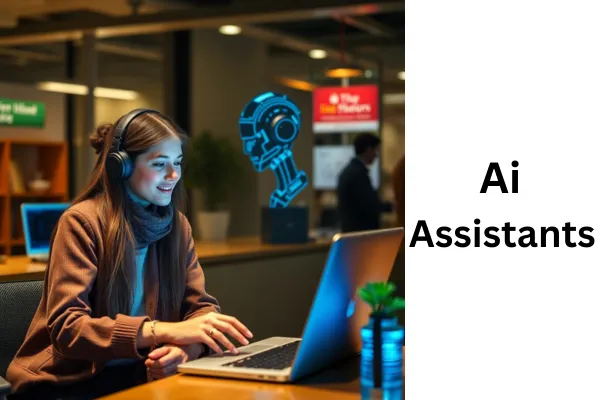
How AI Assistants Can Transform Task Management for People with ADHD
Living with ADHD often means navigating a world that feels designed for neurotypical brains. The constant struggle with time management, organization, and maintaining focus can make everyday tasks feel overwhelming. Fortunately, AI assistants are emerging as powerful allies for those with ADHD, offering personalized support that adapts to unique cognitive patterns and challenges.
Understanding the ADHD Brain
ADHD (Attention-Deficit/Hyperactivity Disorder) affects executive functioning—the mental processes that enable us to plan, focus, remember instructions, and juggle multiple tasks. For those with ADHD, these functions can be inconsistent, leading to:
Difficulty prioritizing tasks
Challenges with time awareness and management
Struggles with task initiation and completion
Problems maintaining focus on non-stimulating activities
Inconsistent memory for appointments and deadlines
How AI Assistants Address ADHD-Specific Challenges
This was my converssation this morming and I said very little but had my day planned - less procrastination as someone has done the BOOOOOORing bit for me - the bit that wastes my time - the planing - leaves me to get on with the shiny stuff..
I assistants can provide the structure and support that many with ADHD find beneficial, without the rigidity that often becomes discouraging.
1. Dynamic Reminders and Time Management
Unlike static reminder systems, AI assistants can send context-aware notifications based on your location, schedule, and previous behavior patterns. This means receiving a gentle nudge about starting a task precisely when you're most likely to be able to act on it.
An AI assistant can:
Break down your day into manageable time blocks
Adapt schedules when hyperfocus or distraction throws your timing off
Provide audio cues to help track the passage of time during tasks
2. Task Prioritization and Breakdown
Many with ADHD struggle with determining which tasks need attention first and how to break down complex projects into manageable steps.
AI assistants excel at:
Analyzing deadlines and importance to suggest optimal task sequences
Breaking large projects into ADHD-friendly "micro-tasks"
Presenting only relevant information to prevent overwhelm
3. Reducing Decision Fatigue
Decision fatigue hits those with ADHD particularly hard, as each decision requires executive function resources that may already be depleted.
An AI planner can:
Suggest optimal times for different types of tasks based on your energy patterns
Automate routine decisions and processes
Provide quick-access templates for recurring tasks
4. Building Consistent Routines While Allowing Flexibility
The ADHD brain often craves both structure and novelty—a seemingly contradictory need that AI assistants can uniquely address.
The assistant can:
Establish core routines while introducing controlled variability
Adapt to your changing focus and energy levels
Offer alternative approaches when standard methods aren't working
Real-World Applications
Morning Routine Optimization
Instead of a rigid schedule, an AI assistant might say: "I notice you have more energy between 7:30-8:45 AM. Would you like to tackle your most challenging task during this window tomorrow?"
Work Project Management
Rather than overwhelming you with a massive to-do list, the AI breaks down projects: "For your presentation due Friday, let's focus on just creating an outline today. I'll set aside 20 minutes with a timer—how does that sound?"
Managing Administrative Tasks
The AI assistant might suggest: "I've noticed you tend to avoid scheduling appointments. Would you like me to set aside a 15-minute block today at 2 PM to make those calls? I'll prepare all the information you'll need beforehand."
Getting Started with an AI ADHD Planning Assistant
To maximize benefits:
Start small - Begin with one area where you struggle most
Be honest about your challenges so the AI can adapt appropriately
Provide feedback regularly to improve personalization
Combine with other ADHD management strategies for comprehensive support
The Future of AI Support for ADHD
As AI technology continues to evolve, we can expect even more sophisticated support that might include:
Integration with wearable technology to detect focus levels and stress
More natural conversation interfaces that reduce cognitive load
Predictive assistance that anticipates challenges before they arise
For the millions living with ADHD, AI assistants represent more than just convenience—they offer the possibility of a world better adapted to neurodivergent minds, transforming productivity challenges into manageable systems tailored to unique cognitive styles.
